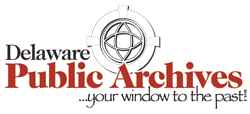
DELAWARE EMERGENCY MEDICAL SERVICES OVERSIGHT COUNCIL (DEMSOC)
The Delaware Emergency Medical Services Oversight Council (DEMSOC) was formed pursuant to the Delaware Emergency Medical System Improvement Act of 1999(HB332).1 The Council consolidates oversight of the EMS system by creating the Delaware Emergency Medical Services Oversight Council (DEMSOC) to replace the current Delaware Emergency Medical Services Advisory Council (DEMSAC) and Paramedic Advisory Council (PAC). is charged with monitoring Delaware’s EMS system to ensure that all elements of the system are functioning in a coordinated, effective, and efficient manner in order to reduce morbidity and mortality rates for the citizens of Delaware. It is also charged to ensure the quality of EMS services in Delaware.
DEMSOC consists of 19 members appointed by the Governor. The Secretary of the Department of Safety and Homeland Security serves as the Chairman. Also serving on the Council is the Secretary of Health and Social Services. DEMSOC includes representatives from the following agencies: the governor’s Office, each County Government, the Delaware State Fire Prevention Commission, the Delaware Volunteer Firemen’s Association and its Ambulance Committee, the Delaware Healthcare Association, the Delaware Police Chief’s Council, the Delaware Chapter of the American College of Emergency Physicians, the State Trauma System Committee, the Medical Society of Delaware, the Delaware State Police Aviation Section, and the State EMS Medical Director. There is a representative for practicing field paramedics and there are three at-large appointments for interested citizens, one from each county. The Delaware Office of Emergency Medical Services provides staff support for DEMSOC.
The Council creates annual reports to inform those interested in our State’s EMS efforts about current practices and initiatives and to provide measurements useful for monitoring the performance of our EMS system. Our inaugural report in 2000 allowed DEMSOC to begin the process of establishing a baseline from which to measure the impact of future changes and growth in Delaware’s Emergency Medical Services (EMS) system. Since EMS was first developed in the 1960’s, systems throughout the country have struggled with finding the best methods to measure and evaluate system performance. Delaware is no exception. One common method is to use response times, but response time data cannot readily measure the quality of care provided to a patient. Other equally important aspects of EMS system to measure are clinical performance and EMS system costs. The annual reports address EMS system oversight, EMS system performance, EMS system costs and medical direction. Specialized programs/areas are highlighted such as: State Trauma System, EMS-C, Cardiovascular Care and Domestic Preparedness.
DELAWARE EMERGENCY MEDICAL SERVICES OVERSIGHT COUNCIL (DEMSOC)
1 72 Delaware Laws, ch. 137.
Danielle J. Hodgemen, OMES Management Analyst III, 4/10/2007
Related Topics: Emergency Medical Services Oversight Council, Medical